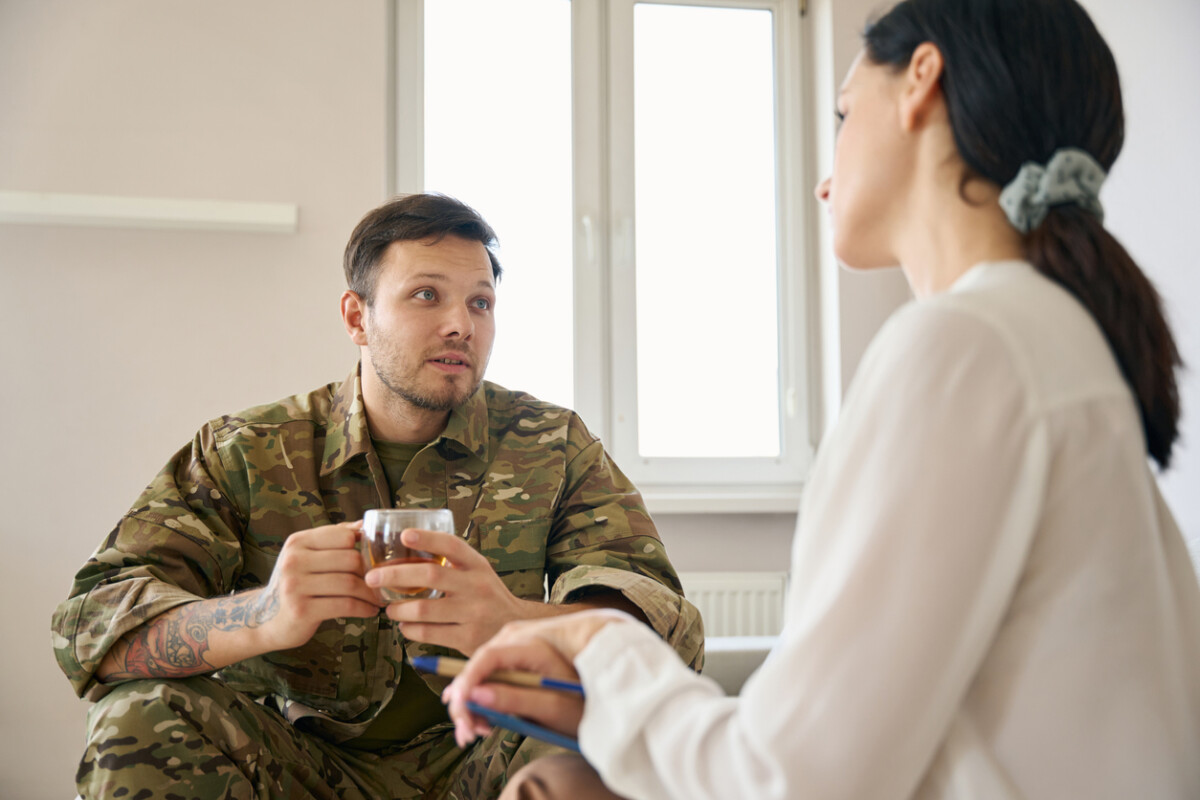Rehabilitation for British Soldiers

War is a sad fact of the time that we live in. War and conflict affect many countries in the world and as globalization brings us ever closer together it is impossible to ignore the effects that this causes on countries as a whole and the people on an individual level. On returning home from arduous campaigns abroad there are many considerations that the British soldiers have to tackle.
With the above in mind, we thought we would touch on some of the rehabilitation process and the alterations that are often needed to one’s lifestyle and one’s home.
Physical Rehabilitation
The first stage for any injured soldier returning home from duty is obviously physical. A long standing partnership between the NHS and the Ministry of Defence (MoD) means that all soldiers get advanced care from experts and with the nature of the injuries, the most advanced medical techniques are always guaranteed.
Get a FREE Brochure
Fill out the form in seconds and discover our full range of assisted bathing showers and baths.

This usually starts abroad at basecamp and often continues when the soldier in question returns home.
The MoD provided primary care, dentistry, occupational medicine and also mental health services as standard and should specialist care be required, this is always offered. This level of care is provided until injured soldiers feel they are ready to return to service, or if they are retiring, they could well be ready to return home and start thinking about a normal life once again.
Mental Rehabilitation
An area that many fail to consider, but which can be a major part of a soldier’s successful rehabilitation, is mental health. Depending on the conflict they have been involved in, there may be much counselling required to enable a veteran to fit seamlessly back into public life, or to be able return to their regiment, as the case may be.
Again, this rehabilitation is aided by the MoD and the NHS and mental health professionals are often sent out to war zones to help with this. Once veterans or injured soldiers return home to the UK for good, then every effort is made to ensure that as well as their physical wellbeing, their mental state is addressed.
This care is provided at 15 different Departments of Community Mental Health (DCMH) around the country and is made possible through the aforementioned partnership between the MoD and various NHS trusts. Returning soldiers are treated in hospitals as close as possible to their home when they are back in the UK.
Preparing for Day-to-Day Life
Something that individuals who have never served in the military before will not be able sympathise with, is the psychological mental transition that occurs when injured soldiers or veterans return home for good. This is rarely as simple as coming home and merging back into society and for this reason, there is a rigorous handover process involved which has been designed for soldiers who have tragically suffered life changing injuries as a result of their service.
The Seriously Injured Leavers Protocol (SILP) has been put in place to enable soldiers to adapt to home life again and deal with any physical or mental conditions that have been caused during their time fighting for the British Forces.
In addition to this, provided that there aren’t patients with greater need, veterans are always entitled to NHS treatment for any condition caused by their military service, this is something soldiers can always rest assured about upon their return home. Soldiers from the non-serving armed forces can also take advantage of such services should the need arise.
The Veterans and Reserves Mental Health Programme (VRMHP) gives mental health assessments for reservists.
Domestic Changes
The nature of war today is such that some veterans return home without full use of limbs and in the more tragic cases, may suffer the loss of a limb. In these cases, the ex-soldiers in question will all be taken care of to the highest standard possible through the NHS and the MoD. However, the chances are that part of their transition back into domestic life will involve some fundamental changes to their home to help with accessibility.
Bathing is one problematic area for ex-servicemen looking to live a normal life around the home, but thankfully the facilities available these days are of incredibly high quality. There are many options of mobility baths, low-access showers, bathtubs with powered seat lifts, wheelchair accessible wet rooms and the associated enclosures. In fact, nearly all solutions can be catered for and this can help all of the aforementioned psychological and mental rehabilitation for veterans no end.
What’s more, these bathing solutions are not as intrusive as many people think. Even if the installation involves some restructuring of the home, the bathing areas remain just as practical for the other members of the household and ensure that the home is future proof for anything to come in the following years. There are even scenarios where a veteran’s medical or MoD plan may involve financial support for such work, taking another worry off the shoulders of the individual. The installation of such facilities can be quick and life-changing for many and allow ex-soldiers who have given their all for our country, to lead an enjoyable and comfortable life when they return home for good. Although a life-changing injury is one of the ultimate repercussions a solider can endure, transitions to the home allows for a sense of independence and increased mobility to be achieved.
Supporting Charities
There are a number of charities that offer both financial and physical support to military personnel and their families. Premier Care are very happy to support Help for Heroes, and for every bathroom installation we carry out, Premier Care in Bathing contribute £100 to the Help for Heroes Charity. Through a national network of support they have helped over 4000 people through their Recovery Centres.
Read more about the work and support of the Help for Heroes Charity
